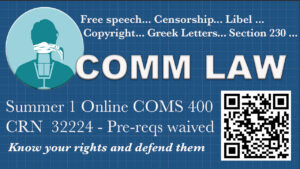The Supreme Court stopped a temporary injunction to block the Biden administration’s ongoing conversations about disinformation with social media companies on Oct. 20, 2023.
This leaves federal agencies such as the Centers for Disease Control free to attempt to influence social media companies in order to (as the administration says) “mitigate the hazards of online misinformation” by flagging content that violated the social media platforms’ own policies.
The states of Missouri and Louisiana have contended in Murthy v Missouri (aka Missouri v Biden) that the government “coerced, threatened, and pressured social-media platforms to censor” them, in violation of the First Amendment. US Surgeon General Vivek Murthy is named as a defendant in the suit. Evidence of this pressure campaign emerged when the Twitter Files were released after Elon Musk purchased Twitter and took over company management on Oct. 27, 2022. CNN published an article about the Twitter Files Dec. 2, 2022.
See SCOTUS Blog, Justices Allow Continued Communication …
Also: FIRE Statement on Murthy v Missouri being granted cert



